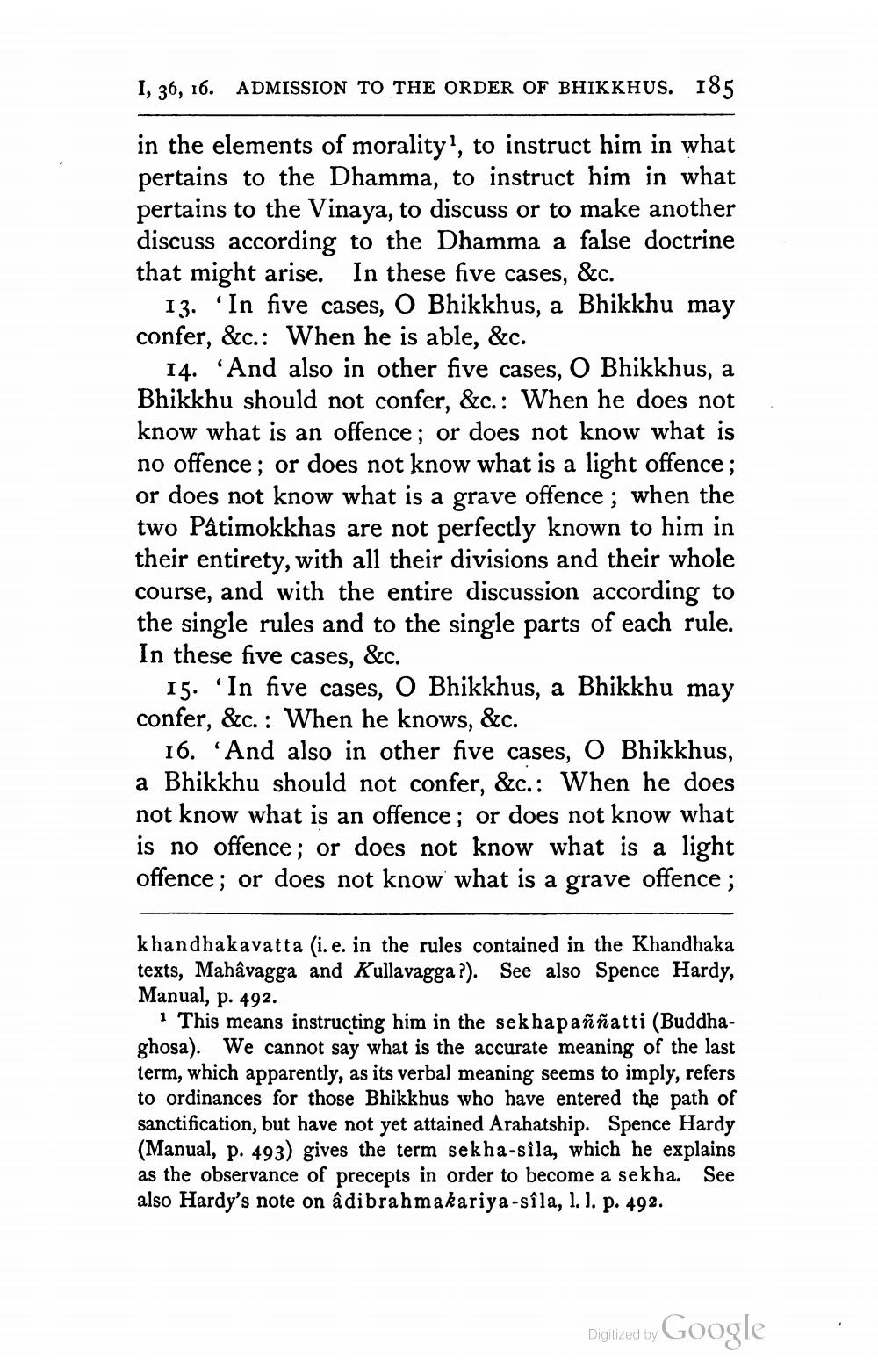________________
1, 36, 16. ADMISSION TO THE ORDER OF BHIKKHUS. 185
in the elements of morality', to instruct him in what pertains to the Dhamma, to instruct him in what pertains to the Vinaya, to discuss or to make another discuss according to the Dhamma a false doctrine that might arise. In these five cases, &c.
13. 'In five cases, O Bhikkhus, a Bhikkhu may confer, &c.: When he is able, &c.
14. 'And also in other five cases, O Bhikkhus, a Bhikkhu should not confer, &c.: When he does not know what is an offence; or does not know what is no offence; or does not know what is a light offence; or does not know what is a grave offence; when the two Pâtimokkhas are not perfectly known to him in their entirety, with all their divisions and their whole course, and with the entire discussion according to the single rules and to the single parts of each rule. In these five cases, &c.
15. 'In five cases, O Bhikkhus, a Bhikkhu may confer, &c. : When he knows, &c.
16. 'And also in other five cases, O Bhikkhus, a Bhikkhu should not confer, &c.: When he does not know what is an offence; or does not know what is no offence; or does not know what is a light offence; or does not know what is a grave offence;
khandhakavatta (i.e. in the rules contained in the Khandhaka texts, Mahâvagga and Kullavagga?). See also Spence Hardy, Manual, p. 492.
1 This means instructing him in the sekhapaññatti (Buddhaghosa). We cannot say what is the accurate meaning of the last term, which apparently, as its verbal meaning seems to imply, refers to ordinances for those Bhikkhus who have entered the path of sanctification, but have not yet attained Arahatship. Spence Hardy (Manual, p. 493) gives the term sekha-sila, which he explains as the observance of precepts in order to become a sekha. See also Hardy's note on âdibrahmakariya-sîla, 1. 1. p. 492.
Digitized by Google
.
Digitized by




